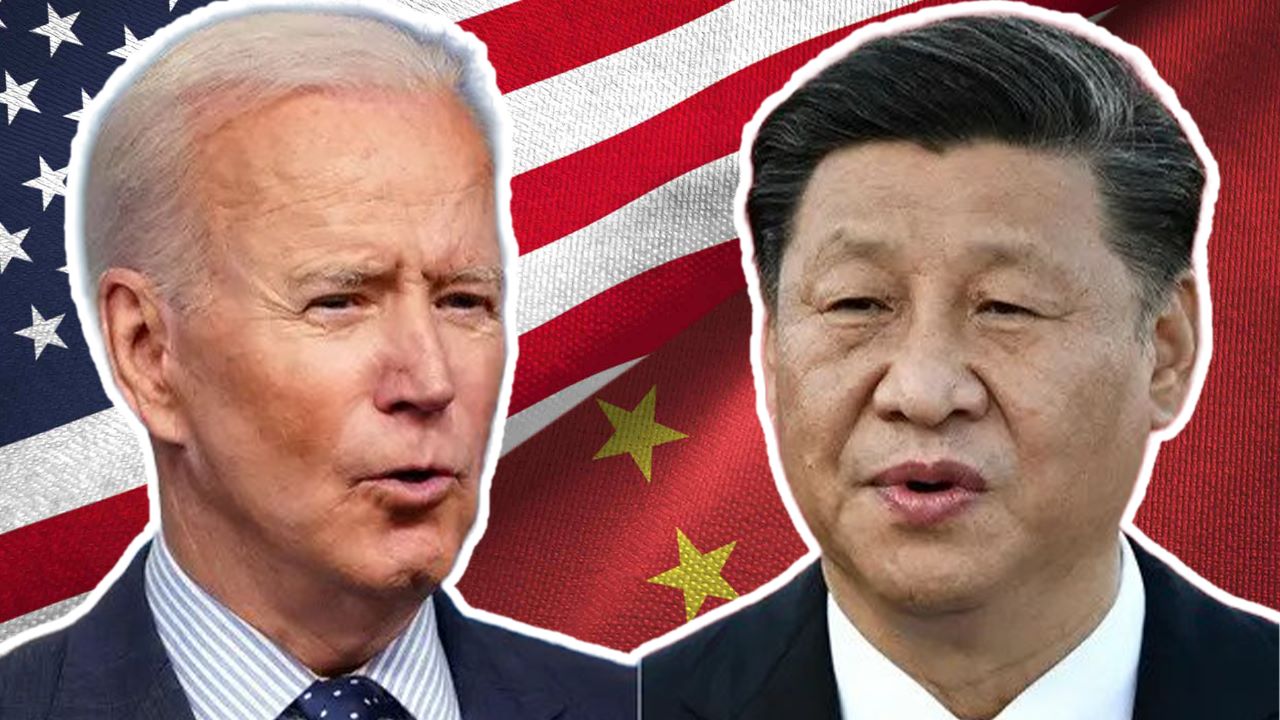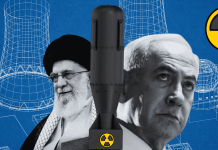The US seems to have become active in Pakistan and the region. It could be an outcome of cooling relations between the “iron brothers.”
Ambassador Donald Blome’s week-long visit to Gilgit and Hunza in the last week of September was kept a secret by the American embassy in Islamabad as well as the Islamabad regime. The office of the Deputy Speaker in the Gilgit Assembly was the first to report the visit; the media blew up the news, and the US missions in Islamabad and New Delhi were obliged to confirm
Before heading towards Gilgit and Hunza, Ambassador Blome visited the port city of Gwadar, where China is executing infrastructure projects as part of CPEC.
Blome’s visit to two destinations in Pakistan seems to be purporting a message to both Pakistan and India, the latter because Gilgit-Baltistan and Aksai Chin areas are claimed by India as her territories and hence their disputed status.
Message To Pakistan
The message to Pakistan can be analyzed as follows.
The US had not shown resentment when some years ago, Islamabad invited China to build the Gwadar port. Nobody knows the conditions of the deal, but unnamed US sources claim that the US was entitled to 20 percent of port revenue.
Was the US complicit in the deal for the reason of containing the naval ambitions of India or something else, is difficult to guess. Gwadar port has strategic importance because the tankers transporting the Gulf oil pass through the Strait of Hormuz, which is close to Gwadar.
The ambassador is reported to have met with senior Pakistani officers in Gwadar, including the naval commander. He spoke about how the people in Baluchistan could be helped to improve their economic life. The US seems to have taken note of the separatist movement in Baluchistan gaining momentum and of increasing attention to the Baluch crisis by the world community.
Washington wants to know the real ground situation in Baluchistan in terms of the escalation of Baluch separatism, the Pakistan army’s counter-separatist plans, the role of the Afghan Taliban, interference by PLA, and the alleged Indian covert support to the separatists in Baluchistan.
The Baluch are opposed to China extending its influence in the Makran coast area under the pretext of fulfilling its responsibility of building the Gwadar port and ensuring the safety of the Karakoram Highway, which ends in Gwadar, and now CPEC is also connected to it. The Baluch nationalists resent China deploying its manpower to work on the project and depriving them of employment opportunities for the natives.
In all probability, the US is also deeply interested in examining what could be the overall situation in the region if, one day, Baluchistan successfully wriggles out of the stranglehold of Pakistani Punjabi domination and announces the establishment of an independent and sovereign state like Bangladesh.
Earlier, the ambassador had met with the Pakistan Election Commissioner, and this act of his had created ripples in Pakistan’s political circles.
The embassy spokesman, Jonathan Lalley, told Dawn,” Our relationship with Pakistan is broad and deep, and the ambassador meets routinely with a wide array of contacts given the wide-ranging areas of mutual interest between our countries.” He added that Pakistan’s electoral process is being overseen and administered by Pakistani institutions, and the US interest is in the democratic process. “We want to see elections that are free and fair and conducted by Pakistan’s law and constitution.” This argument will not have takers in Pakistani civil society.
The visit of a top American diplomat to a sensitive country to sensitive destinations is not without significance. We cannot rest content with the sweet words of the spokesman because we know that former Prime Minister Imran Khan had accused Washington of undue interference in the internal affairs of Pakistan. Washington would not be happy with a political party in Pakistan not friendly to the US coming to power in Islamabad.
Message To India
The message to India is equally ominous. The US does not accept India’s position that being a disputed area, a senior diplomat of a friendly country visiting the disputed region of Gilgit and Baltistan is a violation of international law.\
The US envoy in India asked why a foreign diplomat could not visit the “disputed” area of GB when a team of foreign representatives at the G20 summit did hold a session in Srinagar.
However, to underplay India’s displeasure on GB’s visit of the US envoy, the spokesman of the US embassy said that Gilgit and Baltistan have huge glaciers in the upper reaches of the Himalayas, and the delegation was interested in exploring how the glaciers could contribute to the climate issue. This is a subtle way of side-tracking a direct answer to the question.
During the Great Game era, Gilgit and other northern areas of the original State of Jammu and Kashmir had assumed great strategic importance, particularly when the Bolshevik revolution brought the Soviet Union very close to the northern heights of the western Himalayas.
The message to India is that whatever the future of Pakistan, it is China that is calling the shots in the northern areas of Gilgit, Hunza region. Russia does not seem to have any more interest in its reputed Indian Ocean Warm Water policy.
It has to be noted that Quad-4, of which India is an important member, has so far mostly focused on the sea channels of the Pacific and their strategic and commercial importance. It is the first time that a top US diplomat has led a delegation to Gilgit and Hunza to assess the ground situation.
While dealing with this strategic region, we must note that 67 percent population of Gilgit is of the Shia faction, a community that is viciously persecuted in Pakistan. The strong anti-Pakistan movement in Gilgit, which has rapidly escalated in recent months, demands the opening of the Askardu-Kargil Road so that Gilgit people can establish communication with India. The protesting leadership of Gilgit says that its separation from Pakistan and accession to India is foreseeable.
At the same time, the anti-Pakistan movement in PoJK (Pakistan Occupied Jammu Kashmir) and Kashmir) has intensified to the extent that the Pakistan army is despised and humiliated by the local population.
In their protest rallies, they openly demand the withdrawal of the Pakistani army from PoJK, especially the Neelam Valley area, where Pakistan’s ISI has established terrorist training camps and sends the terrorists into Kashmir valley.
The PoJK leadership avers that Pok’s return to the original J&K State is a settled decision, and they are preparing to send a delegation to New Delhi to discuss with Indian authorities the modalities of political and economic relationship with the Indian Union.

Re-Alignment
Taking this ground situation into account on the part of J&K State under the illegal occupation of Pakistan and warnings issued by various Indian stakeholders, including the defense minister and former Army chief General V K Singh, the US appears to have concluded that new alignment is in the process of shaping in the sensitive north.
Instead of allowing India military supremacy over the region once it is free from Pakistani control, the US would strike a bargain with collapsing Pakistan, allowing her a foothold in Gilgit, Hunza region as a bulwark against both China and India in the strategic region of the Asian continent.
Blome’s previous visit to the region last year invited India’s protest as the US envoy had then referred to the region as ‘Azad Jammu and Kashmir’
Pak Opposition Reacts
Former Senate chairman and PPP leader Mian Raza Rabbani said in a statement that how diplomats were visiting strategic areas and commenting on the internal affairs of the country led one to believe that a “new form of the East India Company had invaded Pakistan.” He said Pakistan had new colonial masters in the shape of international financial institutions.
“The financial imperialist first got their conditionalities accepted in the Agreement, which compromised Pakistan’s financial sovereignty. Now they treat Pakistan as part of the Raj and have started to dictate the political and constitutional arrangements,” reported the Dawn on 26 September.
“This is open and blatant interference in the governance of an independent state. A few days back, the IMF was suggesting which classes should be included and which should not be included in the tax net,” the PPP leader said.
Gilgit Leadership Reacts
The opposition leader of GB, Kazim Masum, in the GB assembly, said the “mysterious activities” of the US ambassador in the region had raised questions, adding that the GB government was not aware of the visit.
There is a set procedure for any country’s ambassador to visit the region. “The visits to the two most vital areas of CPEC were part of the “US’ CPEC containment policy,” reported ANI on 24 September.
The ambassador visited areas from which the CPEC route will pass. There are many under-construction mega projects in GB, including CPEC and Diamer Bhasha Dam, while threats of insurgency from Afghanistan and local security issues also exist. During this time, the undisclosed visit was alarming, quoted the ANI
Conclusion
It is necessary to make a summation of Pakistan’s current political situation in the context of Ambassador Blome’s sojourns. Three out of four provinces of Pakistan are aggressively engaged in wriggling out of the control of the Punjabi military and bureaucratic domination.
In addition, PoJK and Gilgit-Baltistan are on the verge of separation. Thus, the state that was carved by the British colonialists on the behest of the Muslim fanatical leadership of undivided India is on the brink of dismemberment owing first to its economic paralysis resulting from the general loot of the state exchequer by Pakistani Generals and second because of Punjabi hegemony.
The story of Bangladesh is being repeated.
In this scenario, China is already reconciled to the loss of a 53-billion-dollar worth of project CPEC, plus Pakistan’s imminent bankruptcy haunting the Chinese banks that have loaned billions of dollars to Pakistan; Beijing seems to be losing interest in all projects underway in Pakistan.
For the US, there is less concern about the imminent dismemberment of Pakistan but more apprehension that India would be at the forefront of playing the crucial role of leadership in the Asian continent.
The lesson India has to learn is whether she should continue as a member of the Quad-4 or restructure its security policy according to the new situation developing in Asia.
The inclusion of the African Union in G-20 as a result of India’s diplomatic masterstroke, the episode of Five Eyes reflecting a vicious design of defaming India, and India’s growing closeness to France and Russia are strong elements to prompt New Delhi to revisit its security concerns and broaden the parameters of her foreign policy.
- KN Pandita (Padma Shri) is the former director of the Center of Central Asian Studies at Kashmir University. Views Personal.
- Mail EurAsian Times at etdesk(at)eurasiantimes.com
- Follow EurAsian Times on Google News




